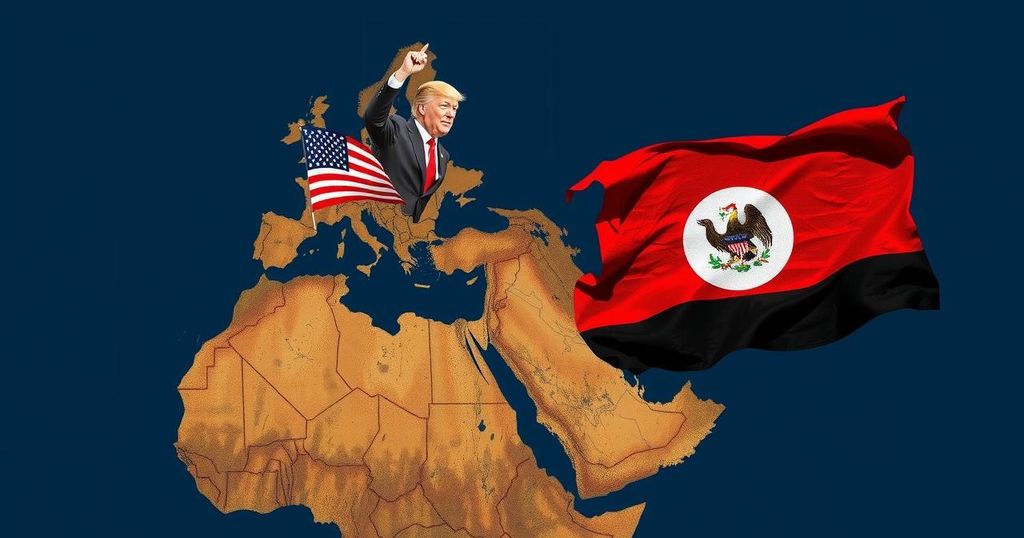The potential outcomes of the U.S. presidential election could greatly affect Middle Eastern politics, particularly Israel-Palestinian relations. Trump is favored by many Israelis for his previous pro-Israel policies, while Kamala Harris has emphasized humanitarian concerns. However, the prospects for Palestinian statehood appear dim regardless of the outcome, with both candidates offering limited hope for progress.
The outcome of the upcoming U.S. presidential election could have significant ramifications for the Middle East. During Donald Trump’s previous administration, he made notable changes to U.S. foreign policy that were largely favorable to Israel, including recognizing Israeli sovereignty over the Golan Heights and facilitating normalization agreements between Israel and several Arab nations. As voters head to the polls, many in Israel express hope that Trump will return to office, believing that his policies align closely with their national interests. In contrast, Kamala Harris’s approach has been characterized by a stronger emphasis on humanitarian issues, raising concerns about Israel’s actions in Gaza and advocating for a ceasefire. Notably, public opinion in Israel appears to favor Trump, with recent polls indicating that around two-thirds of Israelis would support his return. On the Palestinian side, sentiments are less optimistic, as many view the election as unlikely to bring meaningful progress toward statehood regardless of the victor. Both candidates have indicated intentions to address Iran’s nuclear ambitions, albeit through differing strategies. Trump is perceived as more interventionist, while Harris may take a more gradual approach. Ultimately, the election outcome will shape U.S.-Middle East dynamics significantly, with implications for both Israel and Palestine.
The article discusses the potential impacts of the upcoming U.S. presidential election on the Middle East, specifically focusing on how the policies of candidates Donald Trump and Kamala Harris may affect Israel and its relations with Palestinian territories. It provides insights into the historical context of U.S. foreign policy in the Middle East, particularly regarding support for Israel, and highlights sentiments among Israeli citizens in light of recent conflicts, such as the war in Gaza. The article also touches on the differing approaches of the candidates towards Iran and the Israeli-Palestinian conflict.
In conclusion, the U.S. election presents a pivotal moment for the Middle East, with Donald Trump likely to maintain a strong pro-Israel stance, in contrast to Kamala Harris who may adopt a more humanitarian-focused approach. The outcome of the election could profoundly influence regional dynamics, especially concerning Israeli-Palestinian relations and approaches to Iran’s nuclear capabilities. However, the prevailing sentiment among Palestinians suggests a deep-seated skepticism regarding meaningful progress, regardless of who emerges as the victor.
Original Source: www.bbc.com







